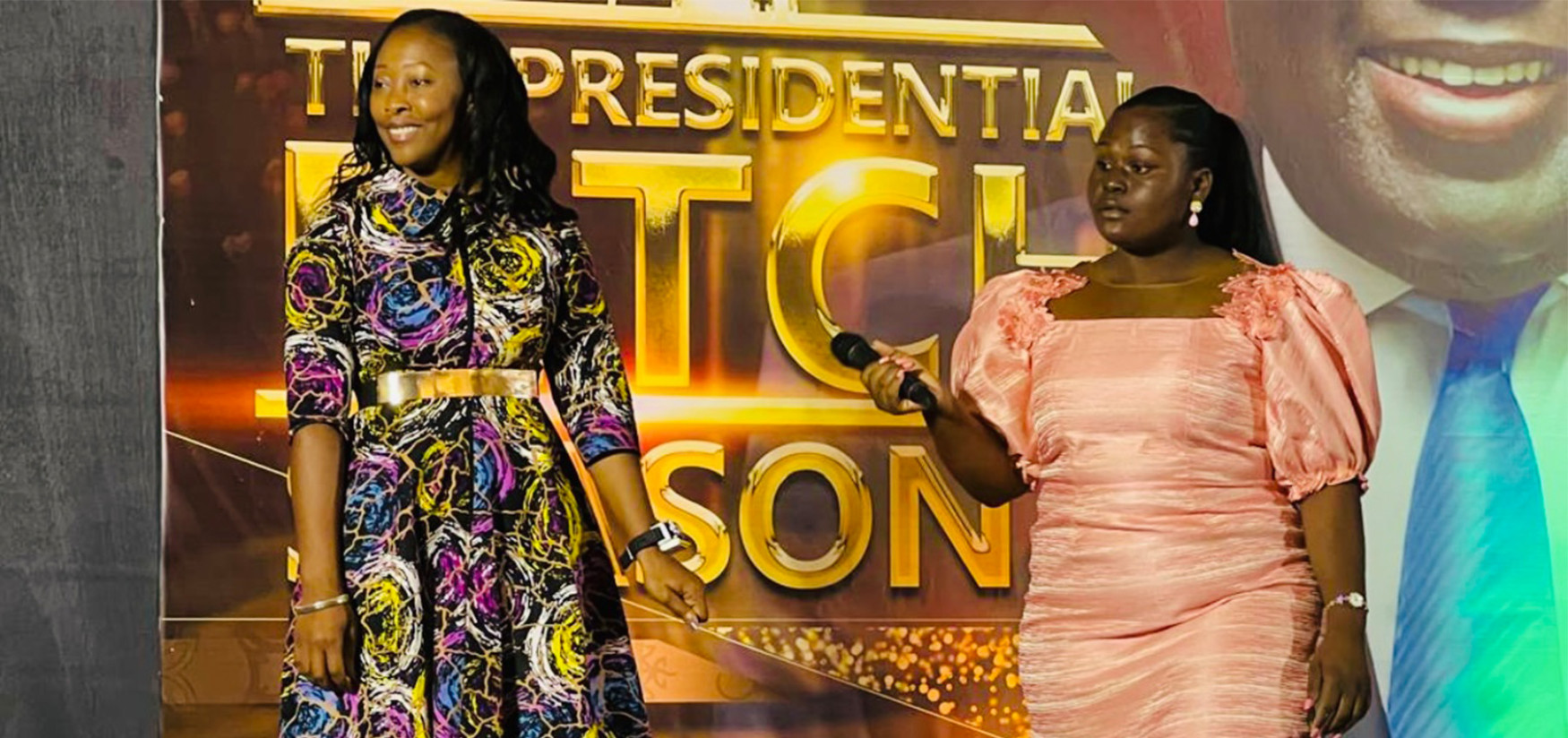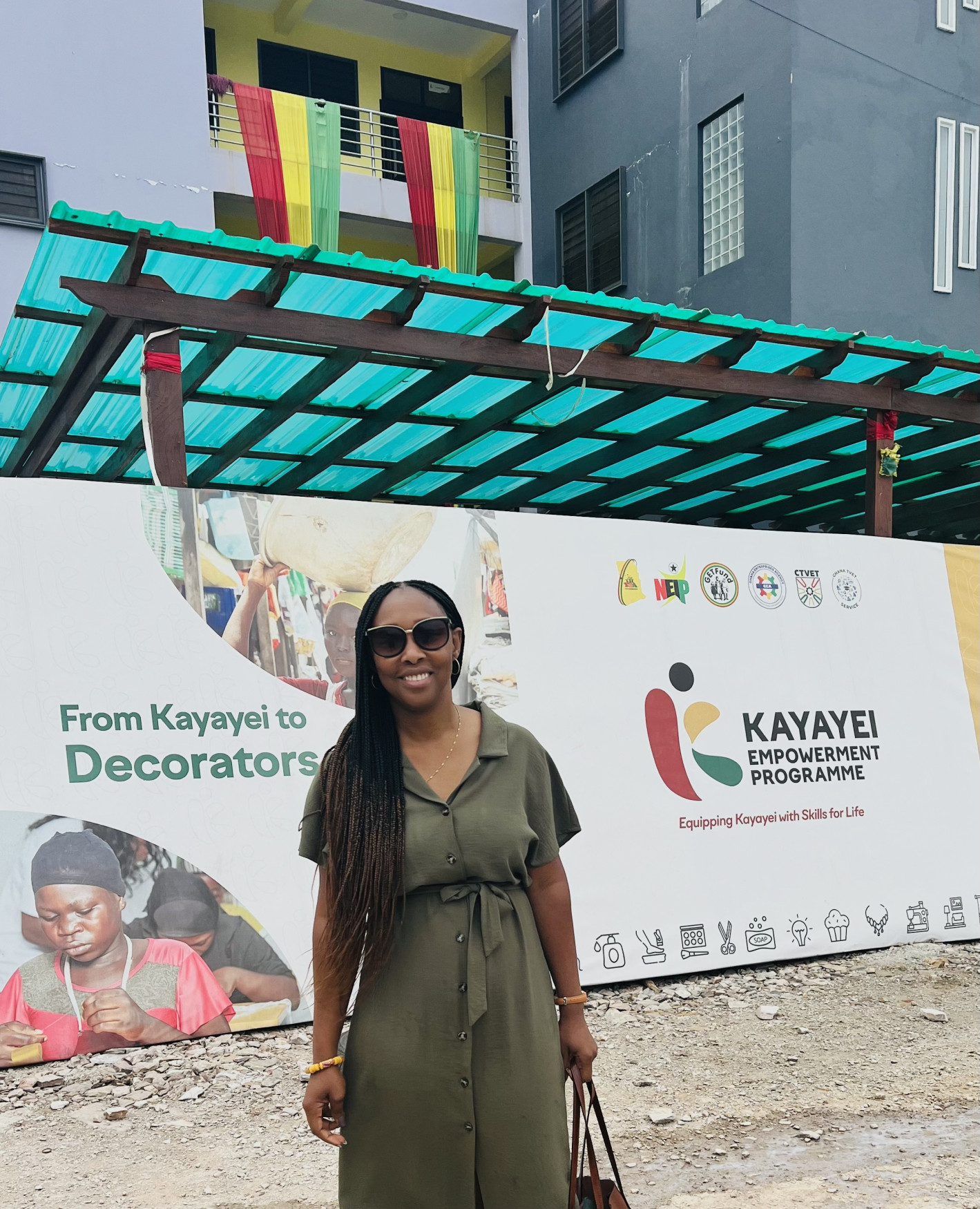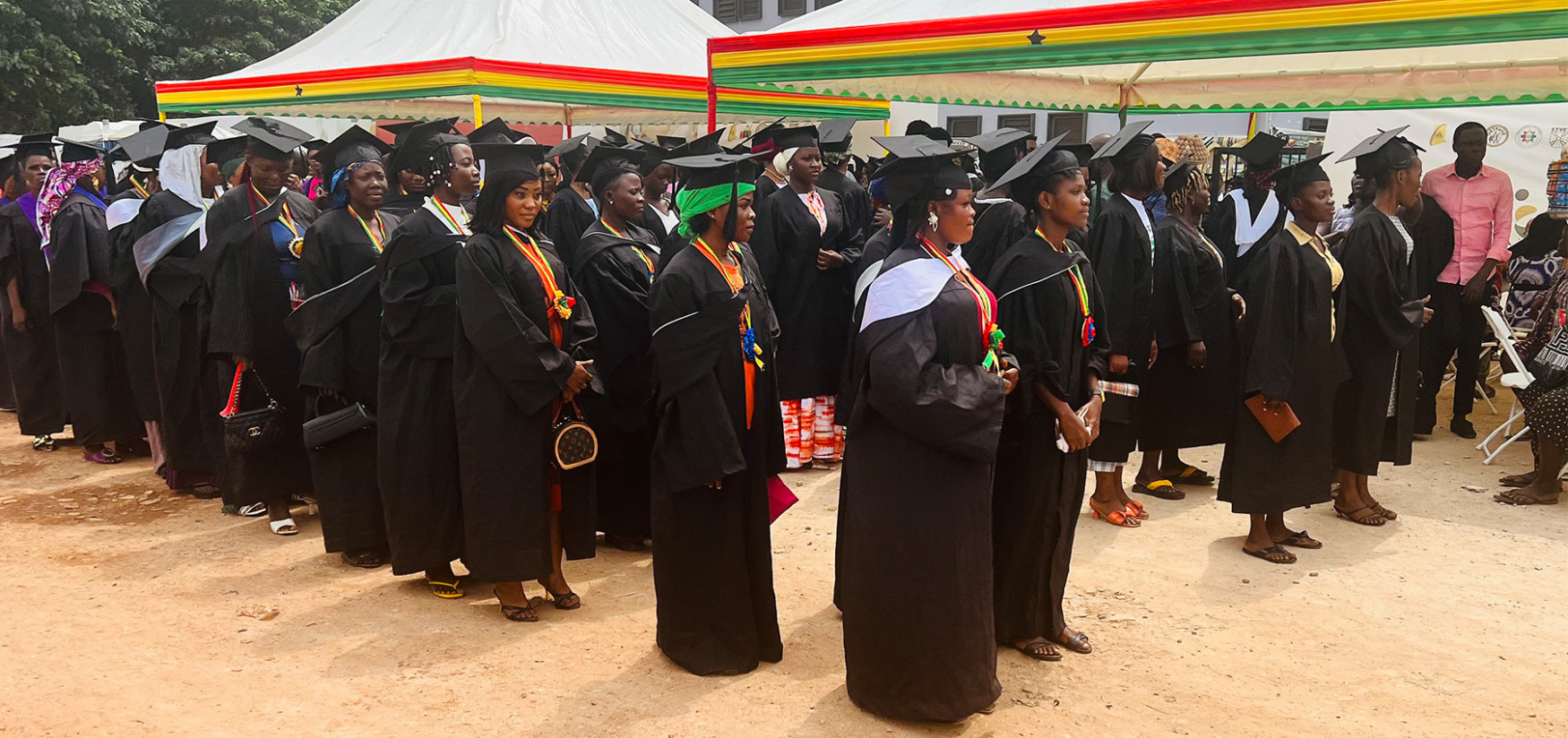
Championing Ghanaian youth with Leave for Change
Faculty member Tanya Manning-Lewis recently finished a volunteer stint in Accra, Ghana. Now she’s back on campus with a renewed sense of purpose and is hoping to inspire colleagues and the wider TRU community to consider how their unique skills can support worthwhile organizations in developing countries.

Tanya Manning-Lewis has finished her volunteer assignment as part of the Leave For Change program, but is continuing to volunteer remotely for the National Entrepreneurship and Innovation Programme.
Manning-Lewis, an assistant professor in TRU’s School of Education, has plenty of experience in front line outreach. After leading a skills training organization for at-risk youth in her home country of Jamaica for 15 years, the world of non-profit organization programming and administration is somewhat second nature for her.
Because the majority of Manning-Lewis’ recent work has centred around teaching, as well as equity, diversity and inclusion (EDI), and anti-racism research, it’s been a number of years since she’s spent time on the front lines in outreach programming.
Feeling somewhat removed from that community work, and with a bit of encouragement from a colleague, Manning-Lewis submitted her application for Leave for Change. Leave for Change is a volunteer program at TRU that connects employee volunteers with partners in developing countries. Employees apply, dedicate a share of their vacation time and, if their skills match an organization’s need, they are selected. A portion of their expenses are subsidized by TRU and World University Service of Canada.
Manning-Lewis submitted an application in July and within days, it was approved. She then interviewed for a role and again, within days, was invited to travel to Ghana for an opportunity in August. Things were happening fast, as she had planned to volunteer in 2025 and wasn’t expecting to be selected so quickly. Despite the rushed timeline, she felt compelled to participate, as the organization’s causes were very close to her heart: youth outreach and gender equity. She made arrangements and was on her way to Ghana.
Working with youth
The opportunity entailed supporting two youth outreach programs through mentorship, and research and grant writing with the National Entrepreneurship and Innovation Programme (NEIP) in Accra.
Her first assignment involved working with young entrepreneurs in the Presidential Pitch program. This initiative provides selected entrepreneurs with a grant as seed money for a business idea. The program starts with 300 youth with business ideas. Through the selection and development process, 10 are chosen to pitch their unique idea to the president of Ghana. Manning-Lewis took a particular interest in supporting the young women, providing mentorship and encouraging them to be assertive when delivering their pitches.
“I got to work with an 18-year-old engineer who created an affordable smartwatch to track stress levels and blood oxygen levels, because her dad had a heart attack. Yes, smartwatches already exist, but they are not always affordable or accessible to everyone. She’s looking at affordable ways to provide these to her community,” she says.
“Amazing innovation is taking place in that continent and it’s a shame that this isn’t always shared. This is not the stereotype of ‘these poor young women need help.’ These women are innovative and resilient and with a bit of support, they can reach their goals.”
Manning-Lewis also spent a considerable amount of time supporting the Kayayei Program. Kayayei are women who work as head porters and transport goods on their heads. She explained that Kayayei women come to Accra from all over the country to earn a living and often to support their families. They vary in education level: some have a few years of university education, some have high school and some dropped out in primary school. Because they are not from Accra, they often do not have safe places to stay.
From shelter to skills
“These women are in vulnerable situations and are earning minimum wage. They will, at times, sleep in the markets or wherever they can. There were an increasing number of young women who were assaulted. This initiative started as a way of providing a safe place for these young women to stay when they are working in Accra.”

Graduates of the Kayayei Program in Accra, Ghana, completed skills training and were ready to start their own small businesses.
What began as a safe accommodation resource for the Kayayei, has grown into a program that offers skills training like soap making, baking, beading, jewelry making and many other areas to prepare the young women to start their own small businesses. They also train in marketing and customer relationship development to learn how to promote their businesses and sell products.
Manning-Lewis gathered research insights and first-hand experiences from the Kayayei to help NEIP understand their situations, needs and goals, and to shape the program’s expansion. She also worked on grant funding applications to aid NEIP in getting much-needed resources to expand the program. At present, it supports 600 women at two training sites and the goal is to add 50 more locations across the country.
Mentoring and working with the women was rewarding, but Manning-Lewis says the highlight of her time was the Kayayei program’s mass graduation ceremony. Many of these women had never finished a program before and it was filled with pride, energy, emotion and celebration.
“It’s had such a profound impact on me in so many ways – knowing how important this opportunity is to the young women in this program. And knowing how important it is to expand this program for the young women who are still at risk. We are creating opportunities for many more young women who may find themselves in the same situation in the future.”
A renewed sense of purpose
Even though her official volunteer assignment is over and she’s back on campus with her students, Manning-Lewis has chosen to continue her work with the NEIP. She’s helping to finish the grant applications and hoping to connect them with various global funding organizations. She’s also aiming to inspire the wider TRU community to consider volunteering in some capacity.
“Across our campus, we have a wealth of expertise and innovation that can meaningfully contribute to these types of programs. Now is the time for us to share it with the world to address the social, economic, environmental and ethical challenges of today and tomorrow and, in the process, truly learn what it means to be a global citizen. The growth I’ve experienced in such a short amount of time is invaluable. I came back with a renewed sense of purpose in the work that I do and a real sense of urgency to do more in this world.”
To learn more about TRU’s Leave for Change program, visit the website.
